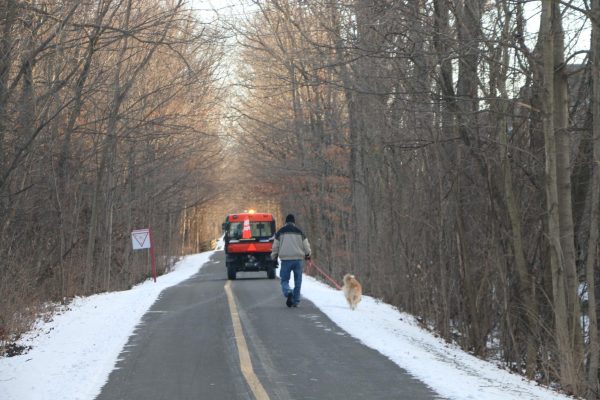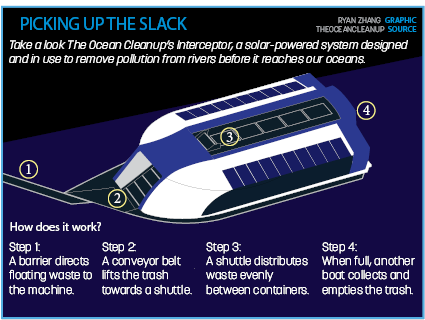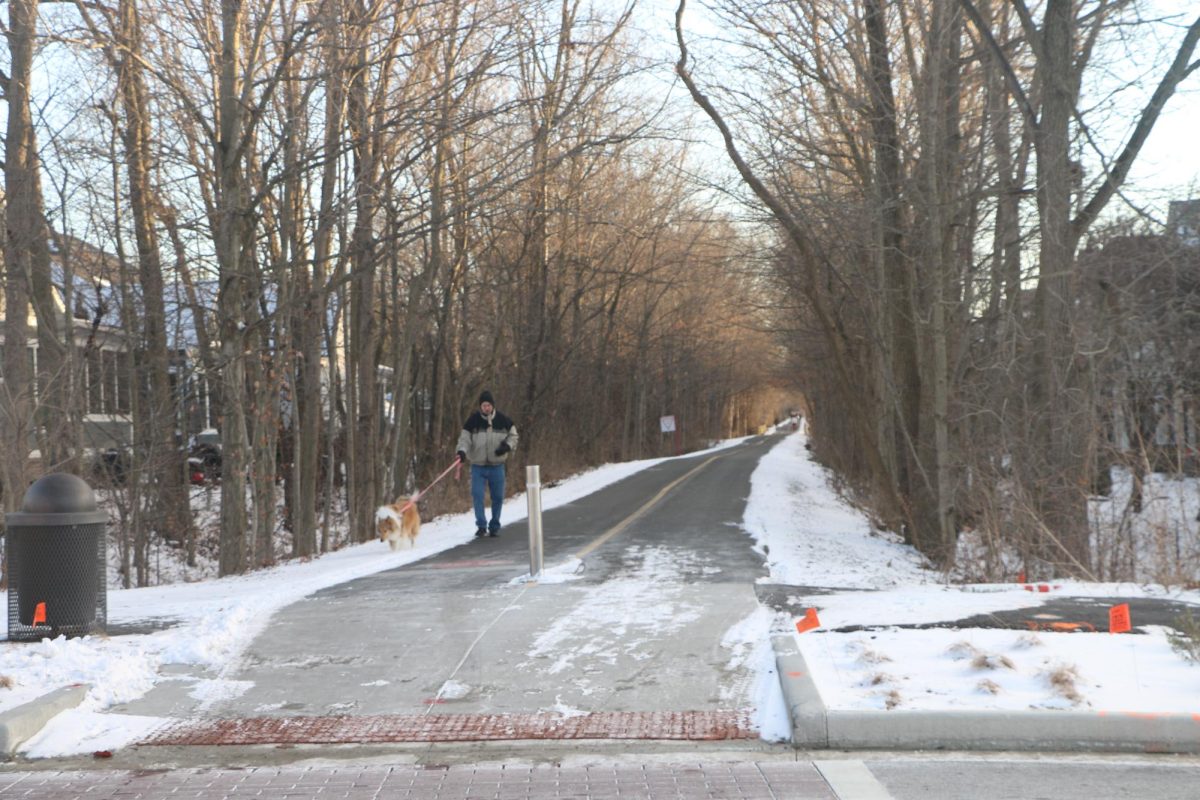Efficient energy usage is a growing problem for the world. According to a recent study by Pew Research Center, 16% of the world’s total energy consumption can be attributed to the United States – despite it having less than 5% of the world’s population. While the industrial sector is most responsible for this issue (the electric power sector wastes two-thirds of energy before it reaches consumers), environmental activists are doing what they can to reduce the problem. Among them is Ella Lipnik, co-president of the Green Action Club and senior.
“The first time I really wanted to get involved in environmental advocacy was when I heard about Green Action Club over the announcements,” Lipnik said. “It was evident that through the news that temperatures were increasing, and natural disasters were increasing, in both severity and frequency. When I heard about Green Action, I knew I had the resources to do something.”
Ashlyn Walker, co-president of Green Action Club and senior said she had a similar experience when first getting involved in conservation and environmental awareness.
“I have always really been interested in environmental activism, but right before my sophomore year of high school is (when) I really started getting involved (in environmental activism),” Walker said. “I joined a state-wide organization called Confront the Climate Crisis, and since then I’ve been involved with other local groups. (I’ve also) been a leader of the Green Action Club.”
Walker said talking to others with similar interests has helped grow her awareness and involvement in the community.
“I learned a lot from some of the older students that I was working with in my sophomore and junior years,” Walker said. “The Green Action Club is a great way that this has all happened because there’s a lot of really great leaders at Carmel that are super passionate about (the environment) and so it’s kind of like a trickle-down effect when (older students are passionate about (the issue, and) then there’s younger students that see that and we can all work together on it.”
Carey Anderson, Green Action Club sponsor, said the influence of that type of word-of-mouth messaging has grown the green community.

“We tapped into the Carmel Parks Department (and) students would sit there and have a booth and just talk about environmental issues with (people) and just have conversations and not try to persuade them (in) anyway, just (that) we are here,” Anderson said.
Lipnik and Walker both said conservation was an important issue for today’s teenagers. One simple way to stop unnecessary consumption, they said, was reducing usage of single-use items. After cutting back on these products, both seniors said they began to encourage close friends and family to do the same.
“Our family uses a lot of reusable (grocery) bags and we limit our use of plastic grocery bags and trash bags,” Walker said. “It’s the whole reduce, reuse, recycle thing, and recycle is like the last step of it. The first part is reduce so I think reducing your overall single-use plastic consumption and then if you do have to use like takeout containers, you can reuse them. We reuse plastic yogurt containers and plastic takeout containers to put leftovers in or to take in my lunch, and then the last step is recycling and composting.”
Lipnik said she had similar practices when it came to conservation.
“I really try to limit as much plastic as I can, and when I do use plastic, I try to reuse those,” Lipnik said. “I definitely recycle a lot more, and I am hyper-aware of what can be recycled and what cannot, and I think that has also affected my family and my friends’ lives. I have a water bottle, a reusable water bottle I take with me everywhere, and I’ve been seeing more kids do that recently, and I think that’s a super important step as well, minimizing your personal waste.”
Despite having many ways to conserve individually, the majority of consumption was due to large companies, Lipnik said, adding that one indirect way to contribute to stopping environmentally damaging actors was through local political action.
“After I started going to more meetings, I really started to get involved through the climate action plan,” Lipnik said. “It was a city council ordinance. I didn’t help construct it, but I did help pass it, and just being able to see physical results and talk in a city council meeting really stuck with me.”
Walker said the work she and the others have put into lobbying and pushing is something she’s proud of. “One goal that we’ve had that my organization (Control the Climate Crisis) has had in the past couple (of) years is implementing progressive climate legislation into the Indiana legislature,” she said. “We’ve gotten really far with that.”
The city of Carmel has also implemented conservation programs, such as composting. Anderson said schools across the Carmel Clay Schools district compost regularly.
“That was years ago, a vision that only three people had and they did a summer camp and they came up with this kind of idea, ‘Why can’t we compost?’” Anderson said. “(The students were) passionate, and those students made a mark, and from that day on I compost at home.”
Walker also said she composts at her own home.
“We work with an organization (where) we compost our food waste and then they come (to) pick it up every month,” Walker said.

In addition, both Anderson and Lipnik said voting is a crucial part of environmental advocacy.
“So in some ways, sometimes we talk about different bills that are going through the systems of the state of Indiana,” Anderson said. “We don’t try to say, you know, Republican, Democrat; that’s not our stance. But we want the youth to be heard.”
“It is so easy to register to vote,” Lipnik said. “All you need is a driver’s license and the ability to read. There’s really no excuse not to register.”
Overall, Lipnik said there is still a lot of action to be done in environmental conservation, but she said she was grateful for the opportunity to be involved in such important environmental issues.
Lipnik said, “While there is that overarching negative feeling, just being able to contribute to the positive effects and being able to work towards a hopefully green planet and sustainable living situation, brings you a lot of hope and encouragement.”


